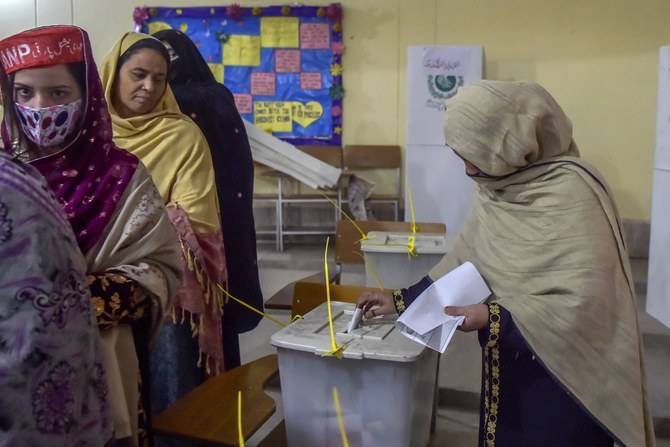
“If you want to know how civilized a culture is, look at how they treat its women.” - Bacha Khan
In the heart of Khyber Pakhtunkhwa (KP), a region brimming with resilience and potential, there exists a stark reality that impedes its progress: the underrepresentation of women in the political sphere. This disparity not only stifles the voices of half the population but also hampers the region's socio-economic development.
Khyber Pakhtunkhwa, with its rich cultural heritage and diverse populace, has long grappled with socio-political challenges. Yet, amidst the rugged landscapes and bustling bazaars lies an untapped resource – the potential of its women. However, entrenched patriarchal norms, compounded by societal taboos and systemic barriers, conspire to marginalize women from participating meaningfully in the political process.
At the core of this issue lies the lack of representation in decision-making bodies. Women, comprising approximately half of the population, are grossly underrepresented in legislative assemblies and local councils. This dearth of female voices perpetuates a cycle of neglect, as policies and initiatives fail to address the unique challenges faced by women and girls in the region.
The ramifications of this underrepresentation reverberate across all facets of society. Inadequate access to healthcare, limited educational opportunities, and economic disenfranchisement disproportionately affect women and girls in KP. Without adequate representation in government, these systemic inequities persist, perpetuating a cycle of poverty and marginalization.
In the pivotal year of 2013, as the General Elections approached, I anticipated exercising my right to vote for the first time. However, a cloud of uncertainty loomed over my village. Would we, the women, be permitted to partake in this fundamental democratic process? Sadly, the answer was a resounding no. The females of my community were denied the opportunity to cast their votes.
Disheartened yet determined, I rallied the women of my neighborhood, gathering approximately twenty strong-minded individuals to journey to the polling station. However, our endeavor was met with opposition from within our own ranks. An elderly man confronted us, expressing concern over the perception of women venturing out of their homes to engage in political affairs. Despite his objections, we persisted, knocking on every door along the way, urging our fellow women to exercise their right to vote. Thus, 2013 marked a watershed moment for the women of Dargai, Malakand, as they exercised their franchise for the first time.
Fast forward to the General Elections of 2024, and little progress seems to have been made. A cousin of mine revealed that she had never cast her vote, as women in her area in Malakand still lacked suffrage rights. This stagnation is symptomatic of a broader societal issue – the entrenched apathy towards political participation among Pashtun women. It is a cycle of ignorance and indifference passed down from generation to generation, wherein the significance of one's vote is dismissed as inconsequential.
Despite this pervasive apathy, a glimmer of hope emerged in the form of Nazia Hassan, an independent candidate contesting from PK-23, Malakand. However, her candidacy was shrouded in obscurity, reminiscent of local body elections where women candidates were often relegated to anonymity, identified solely by their marital or familial ties. This reluctance to acknowledge women's individual identities permeates the political landscape, undermining their agency and ability to effect change.
Dr. Abasin Yusufzai, a prominent Pashto poet and scholar, attributes this reluctance to cultural norms that dictate the seclusion of women, both physically and politically. The pervasive influence of male guardianship stifles the aspirations of women seeking political office, perpetuating their underrepresentation in the political arena.
Amidst this backdrop of marginalization, the Awami National Party's decision to field eleven women candidates in the 2024 general elections is a commendable step towards gender inclusivity. Inspired by the feminist ideologies of Bacha Khan, this gesture underscores the pivotal role of women in shaping the future of Pashtun society.
Yet, the sociopolitical and economic stagnation plaguing Pashtun communities persists, fueled in part by the systemic exclusion of women from political discourse. To break this cycle of inertia, we must celebrate the incremental victories, such as the election of Shandana Gulzar as the first female representative from KP to the National Assembly.
In the words of Quaid-e-Azam, "No nation can rise to the height of glory unless your women are side by side with you." It is incumbent upon us, as a society, to dismantle the barriers hindering women's political participation, to empower them to exercise their rights, and to nurture their potential as catalysts for progress. Only then can we truly aspire to rise as a nation, transcending the shackles of tradition and embracing a future of equality and opportunity for all.
The underrepresentation of women in politics is not just a matter of equity; it is a barrier to growth and prosperity in Khyber Pakhtunkhwa. By dismantling systemic barriers, challenging cultural norms, and empowering women to participate fully in the political process, KP can unlock its true potential and pave the way for a brighter, more inclusive future for all its citizens.

